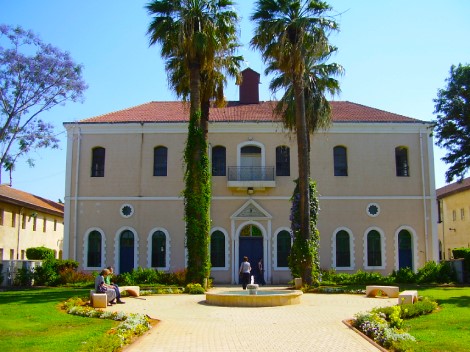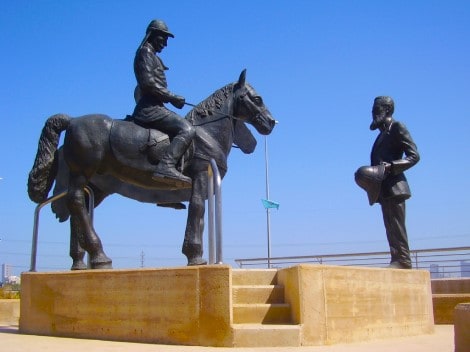Founded in 1870 by Charles Netter, Mikveh Israel is an agricultural school established to teach a new way of life to the future Jewish farmers of Israel. It was the first of its kind in the country and the first modern Jewish settlement in Palestine outside of Jerusalem, heralding a new era in the region’s history.

The History of Mikveh Israel
Mikveh Israel was founded while the Ottoman Empire was still around. The educational institution was established to allow young Jews to learn agriculture and establish villages and settlements throughout the country. The project was established on a 750-acre tract of land southeast of Jaffa leased from the Ottoman Sultan.
Charles Netter, an emissary of the French organization Alliance Israélite Universelle, was the school’s first headmaster. He introduced new methods of agricultural training and pioneered progressive educational methods.
In the 1880s, the school trained the first group of farm workers to create an eventual self-sustaining village. The farm workers were from the Russian village of Pavaluka, and in 1883, they moved to Palestine and created a farming settlement known as Rishon le-Zion.

Credit: Dr. Avishai Teicher Pikiwiki Israel, CC BY 2.5, via Wikimedia Commons
Research Facility
Mikveh Israel served as the research center for the country for decades before the establishment of the Volcani Center and the Faculty of Agriculture in Rehovot. The school was renowned for writing the first study books about agriculture. After completing their studies at Mikveh Israel, thousands of graduates started agricultural settlements throughout the country, including rural schools and farms, moshavim, villages, and kibbutzim.
A section for religious youth was built to house the religious and traditional youngsters who fled western Europe just before the start of the Holocaust in 1938 at the request of the Youth Aliyah.
Education
Mikveh Israel currently houses about 1,800 pupils from the age of 12 to the age of 18. The site is also home to four Montessori and holistic pedagogy kindergartens and a Montessori elementary school. The agricultural grounds cover over 2,200 dunams (220 hectares), and most fields are irrigated using wells. The grounds include field crops, industrial crops, vegetables, fruit trees, orange groves, and greenhouses, and they also raise animals, including milk cows, chickens, and honeybees. Auxiliary branches of the school include computerized agriculture.
Greenhouses are used to teach students and allow them to research greenhouse issues and technologies. A rainwater harvesting system allows the efficient reuse of water collected from the roof for growing vegetables in greenhouses.
The school’s gardening and landscaping activities include woods, lawns and gardens, and spots throughout the village. In 1930, a botanical garden was established to adapt and acclimate trees and species to the Israeli climate. Plants were imported worldwide, and the botanical garden now covers 70 dunams (7 hectares).
Mikveh Israel’s dairy farm deals in product quality control, herd health, udder health, artificial insemination, and embryo transfer and implants and acts as a milking parlor. The stables house several breeds of riding horses, including Hanoverian, Holland, and quarter-horse breeds.
Touring Mikveh Israel
Today you can tour the reconstructed 19th-century school buildings. New sculptures near the Jerusalem Gate, telling the story of the meeting between Herzl and the German Kaiser Wilhelm II, a famous palm avenue, banyan next to the architecturally unique synagogue, darkish stone carved wine cellars, a reconstructed mechanical workshop, in which the famous “Davidka,” the first Israeli mortar, was invented in 1948, a rich botanical garden with a collection of trees and bushes which are rare in the Land of Israel and the film “Up the palm avenue.”
For the general public: guided pre-coordinated tours for groups; on holidays – tours for single visitors and families. The tour provides an introduction to the stories of the unique houses, the interesting architectural style, as well as the stories of the people of Mikveh Israel over generations up to these days. For more info, please follow this link!







